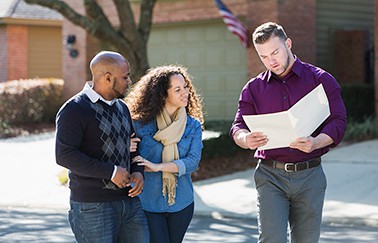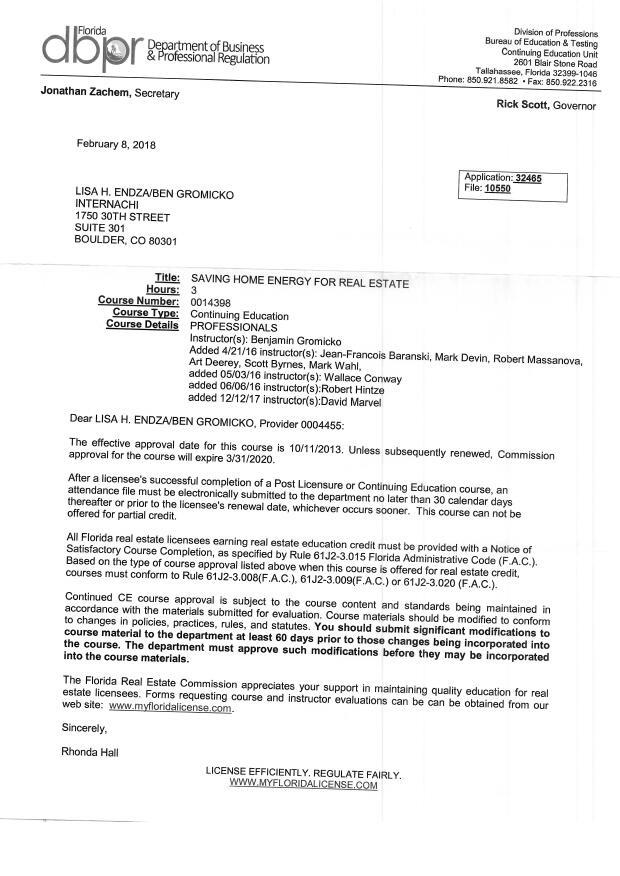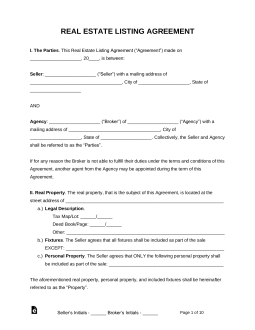
A wholesaler is a person who buys and sells houses at a profit. Wholesaling can be an alternative to investing on their own in properties. However, this can be costly and time-consuming.
How to Wholesale Real Estate
You must first find properties that you can purchase for less than they are actually worth to become a home-supplier. This is possible by looking for distressed homeowners in need of selling their property quickly.
Before you make an offer on a house, it is important that you determine the fair market value of each property. This will enable you to figure out the maximum price you are willing to pay for the house, while still making a profit.
This will allow you to assess the area's current occupancy rate, as well as the return on cash the property can provide after any repairs. This will enable you to decide whether it makes financial sense to either rent out or buy the property.

How to Wholesale Property
Another way to find homes for sale at a lower price is to visit open houses in your area or go to real estate auctions. These are great places to look for new houses and they can be very profitable.
Once you have found a few great deals, it is now time to begin the process for wholesaling. This can be done by researching the area and finding a realty lawyer to create a contract for the purchase of your wholesaled property.
Next, you need to find buyers interested in buying your property. These buyers may be on your current buyer's list. Or, you can contact people who live in the area to find them.
Once you have found an interested buyer, you will need finalize the agreement and assign the contract. After the transaction is completed, the buyer will pay a transaction fee and you will be given ownership of the property.
How to Earn a Wholesale Real Estate Salary
Wholesalers can start wholesaling from their home without much capital or experience. It does take a lot of hard work and research to ensure you make a good profit from your wholesale deals.

One of the best things about wholesaling is the ability to build large portfolios without taking on high-risk, high-return investments. This can be a valuable asset for those who are starting out in the real estate business or who are looking to increase their profit margins.
You can succeed in wholesaling by being active in your local community and forming relationships with other wholesalers and real estate agents, lenders, contractors, and lenders. This will help you gain more information about the process, and allow you to get more deals. It will also increase your credibility with potential sellers.
FAQ
What are the top three factors in buying a home?
The three most important factors when buying any type of home are location, price, and size. The location refers to the place you would like to live. Price refers how much you're willing or able to pay to purchase the property. Size refers to the space that you need.
Can I buy a house without having a down payment?
Yes! Yes. These programs include FHA, VA loans or USDA loans as well conventional mortgages. Visit our website for more information.
Is it better for me to rent or buy?
Renting is often cheaper than buying property. However, you should understand that rent is more affordable than buying a house. There are many benefits to buying a home. You will be able to have greater control over your life.
Can I get a second mortgage?
Yes. However it is best to seek the advice of a professional to determine if you should apply. A second mortgage is typically used to consolidate existing debts or to fund home improvements.
How do I get rid termites & other pests from my home?
Over time, termites and other pests can take over your home. They can cause damage to wooden structures such as furniture and decks. A professional pest control company should be hired to inspect your house regularly to prevent this.
Statistics
- This means that all of your housing-related expenses each month do not exceed 43% of your monthly income. (fortunebuilders.com)
- It's possible to get approved for an FHA loan with a credit score as low as 580 and a down payment of 3.5% or a credit score as low as 500 and a 10% down payment.5 Specialty mortgage loans are loans that don't fit into the conventional or FHA loan categories. (investopedia.com)
- Private mortgage insurance may be required for conventional loans when the borrower puts less than 20% down.4 FHA loans are mortgage loans issued by private lenders and backed by the federal government. (investopedia.com)
- Based on your credit scores and other financial details, your lender offers you a 3.5% interest rate on loan. (investopedia.com)
- 10 years ago, homeownership was nearly 70%. (fortunebuilders.com)
External Links
How To
How to Manage a Rent Property
Renting your home can be a great way to make extra money, but there's a lot to think about before you start. These tips will help you manage your rental property and show you the things to consider before renting your home.
Here's how to rent your home.
-
What are the first things I should consider? Take a look at your financial situation before you decide whether you want to rent your house. If you have outstanding debts like credit card bills or mortgage payment, you may find it difficult to pay someone else to stay in your home while that you're gone. You should also check your budget - if you don't have enough money to cover your monthly expenses (rent, utilities, insurance, etc. It might not be worth the effort.
-
How much will it cost to rent my house? There are many factors that go into the calculation of how much you can charge to let your home. These factors include your location, the size of your home, its condition, and the season. Remember that prices can vary depending on where your live so you shouldn't expect to receive the same rate anywhere. Rightmove shows that the median market price for renting one-bedroom flats in London is approximately PS1,400 per months. This would translate into a total of PS2,800 per calendar year if you rented your entire home. While this isn't bad, if only you wanted to rent out a small portion of your house, you could make much more.
-
Is it worthwhile? It's always risky to try something new. But if it gives you extra income, why not? Before you sign anything, though, make sure you understand exactly what you're getting yourself into. It's not enough to be able to spend more time with your loved ones. You'll need to manage maintenance costs, repair and clean up the house. These are important issues to consider before you sign up.
-
Is there any benefit? So now that you know how much it costs to rent out your home and you're confident that it's worth it, you'll need to think about the advantages. There are many reasons to rent your home. You can use it to pay off debt, buy a holiday, save for a rainy-day, or simply to have a break. Whatever you choose, it's likely to be better than working every day. If you plan well, renting could become a full-time occupation.
-
How can I find tenants? After you have decided to rent your property, you will need to properly advertise it. Listing your property online through websites like Rightmove or Zoopla is a good place to start. Once potential tenants contact you, you'll need to arrange an interview. This will help you assess their suitability and ensure they're financially stable enough to move into your home.
-
What can I do to make sure my home is protected? If you are worried about your home being empty, it is important to make sure you have adequate protection against fire, theft, and damage. You'll need to insure your home, which you can do either through your landlord or directly with an insurer. Your landlord will usually require you to add them as additional insured, which means they'll cover damages caused to your property when you're present. However, this doesn't apply if you're living abroad or if your landlord isn't registered with UK insurers. In such cases, you will need to register for an international insurance company.
-
You might feel like you can't afford to spend all day looking for tenants, especially if you work outside the home. It's important to advertise your property with the best possible attitude. Post ads online and create a professional-looking site. Additionally, you'll need to fill out an application and provide references. Some people prefer to do the job themselves. Others prefer to hire agents that can help. It doesn't matter what you do, you will need to be ready for questions during interviews.
-
What do I do when I find my tenant. You will need to notify your tenant about any changes you make, such as changing moving dates, if you have a lease. If this is not possible, you may negotiate the length of your stay, deposit, as well as other details. Keep in mind that you will still be responsible for paying utilities and other costs once your tenancy ends.
-
How do you collect rent? When the time comes to collect the rent, you'll need to check whether your tenant has paid up. If not, you'll need to remind them of their obligations. After sending them a final statement, you can deduct any outstanding rent payments. If you're having difficulty getting hold of your tenant you can always call police. They will not normally expel someone unless there has been a breach of contract. However, they can issue warrants if necessary.
-
What are the best ways to avoid problems? Although renting your home is a lucrative venture, it is also important to be safe. Make sure you have carbon monoxide detectors installed and security cameras installed. Make sure your neighbors have given you permission to leave your property unlocked overnight and that you have enough insurance. Finally, you should never let strangers into your house, even if they say they're moving in next door.